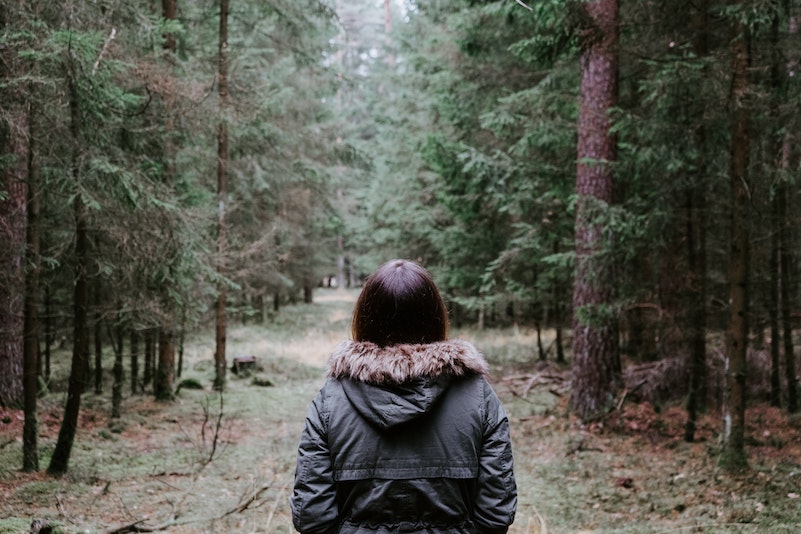
When was the last time you found yourself sitting at home, maybe a little bored, a little aimless, wishing that someone was there to just spend time with you? So, you go on social media and start scrolling or you make a call but no one answers on the other end. Not being able to connect when we’re craving human contact can leave us feeling really lonely…and maybe even rejected, abandoned, or kind of empty.
When loneliness begins to creep in, it doesn’t mean there’s anything wrong with you. It doesn’t mean you’re unlovable or unworthy of connection. Most of us feel the pangs of loneliness from time to time and this is completely normal, but knowing it’s normal doesn’t make it any easier to live with.
Experiencing loneliness can take a toll on our mind and bodies over time, but thankfully there are things we can do so that we feel less lonely, less often. Let’s dive in so that we understand why we feel lonely and what we can do about it.
We’re wired for connection
As social creatures, we’re wired to establish and maintain connections with other people. We need water, air, food, sleep, and each other to survive and thrive. So, it’s no surprise that experiencing chronic loneliness is detrimental to our mental and physical health.
Connecting with another person can help us regulate our emotions, lift our mood, improve self-esteem, and can even give our immune system a boost. Adversely, experiencing loneliness can lead to (and be a symptom of) depression. It can also cause us to rely on not-so-great-for-us behaviors, like numbing with drugs and alcohol, and can actually put stress on our bodies.
So, the next time you feel lonely, try to be gentle with yourself. You’re simply experiencing a fundamental human need, so take that as your cue to seek out connection in one of the ways we spell out below (or in whatever way feels good for you!).
Is it actually loneliness?
Want to know if you’re actually lonely? We found this insightful quiz that will give you a better understanding of what you’re experiencing.
Being lonely doesn’t even necessarily mean that you’re alone. It’s actually a state of mind, which can make it difficult to detect. For example, you may find yourself at a holiday work party, standing solo by the snack station, watching everyone else mingle, and feeling quite lonely. You’re surrounded by people, but you’re not experiencing connection with those around you.
On the flipside of loneliness, there’s solitude. This is when you have alone time that allows you to regroup, recharge, and connect with yourself. It’s actually important for your mental health to carve out some “me time.”
Say you’ve been on a road trip with a group of friends for several hours and you finally get to your destination. You’ve been engaged in constant conversation while on the road, feeling connected to those around you, but also pretty socially fatigued. You step into your hotel room alone and have an entire hour to yourself to just relax, unwind, and focus on your needs. It’s a pretty wonderful feeling to bask in solitude sometimes.
Solitude is voluntary, allowing you to have time to yourself before rejoining a social setting when you begin to crave connection again. It’s a healthy balance of time with others and time with yourself.
Notice how much social interaction you need to feel your best. For some people, this may mean connecting with someone else multiple times a day. And for some, once a week is enough.
How to feel less lonely
It takes effort, and will sometimes push us out of our comfort zones, but it is possible to lessen our feelings of loneliness. The next time you’re in the “lone zone”, give one or a few of these a try and see if it helps.
- Acknowledge and make space for your feelings. Just admitting to yourself that you’re lonely and noticing how that feels in your body is a wonderful act of self-care. It’s an uncomfortable feeling to sit in, but taking time to journal, meditate, and better understand what you’re experiencing can make loneliness feel less scary and permanent.
- Pursue a new activity or try signing up for volunteer work. Sure, this one can be tough to do, especially if you’re an introvert (Psst… here’s another quick quiz to see if you’re more introverted than extroverted). But, if you give it a go, you’ll likely meet people with shared interests and you’ll feel good doing what you love or by giving back to others. you may want to try. Maybe you sign up for a bookclub, a beach clean up day, or a basketball league. Whatever speaks to you is worth pursuing.
- Take a walk outside. We’ve said it before and we’ll say it again, nature is healing. Feeling the fresh air on your face, watching the trees blow in the breeze, and listening to the birds chirp is an easy hack when you’re in a funk. Getting outside of our four walls is a quick way to be reminded that we’re not alone in this world.
- Get intentional about existing relationships. Connecting with others can take a little extra work, but it’s usually worth it in the end. When you start to feel isolated, consider reaching out to a loved one and ask for some time together. Maybe you can schedule a walk, a phone call, or do an activity together that you both enjoy. Just having that touchpoint with another person, and something coming up on your calendar, can help to lift your mood and feel less alone.
- Take a social media break. Our relationship to our screens can be complicated — they keep us connected, but they can also make us feel less connected to those around us. A recent study found that social media use can be linked to increased feelings of social isolation. We think we’re connecting to others virtually, but we may actually be exacerbating our loneliness. Next time, just notice how you feel after scrolling your feed and consider taking some time off if you experience residual negative emotions.
- Reach out to a professional for support. If you’re struggling with feelings of loneliness, a mental health professional can be a great person to confide in. Remember that our Sanvello therapists are always here for you if you want extra support.
It’s not always easy for some of us to connect with others. Maybe you live alone, work from home, are living in a rural area, have experienced a loss, or just relocated to a new city… all while still living with the effects of a pandemic.
Remember that when it comes to social interactions, it’s about quality, not quantity. An intentional conversation with a close friend, where you truly connect, will likely make you feel less alone than responding to 20 Instagram messages on your phone.
We’re not saying that you need a robust social circle with more friends than you can even count. It’s all about having a few, trusted people in your life that you can turn to when you need connection. And, if you’re feeling lonely right now, you can head to our Loneliness Community to share it with others who understand.
It’s completely natural to feel lonely sometimes, but remember that you both need and deserve connection with others. If you’re up for it, try taking one small step right now to feel a little less alone in your day.

By Katie Nave, Copywriter at Sanvello
Katie is a writer and mental health advocate living in Brooklyn, New York. Her work has been featured in publications including Newsweek, Glamour, Business Insider, and Motherly. She has served as a producer for the National Women’s March and worked with organizations like Girls Inc. and CancerCare. She is currently the Copywriter at Sanvello and you can follow her on Instagram: @kathryn.e.nave.
